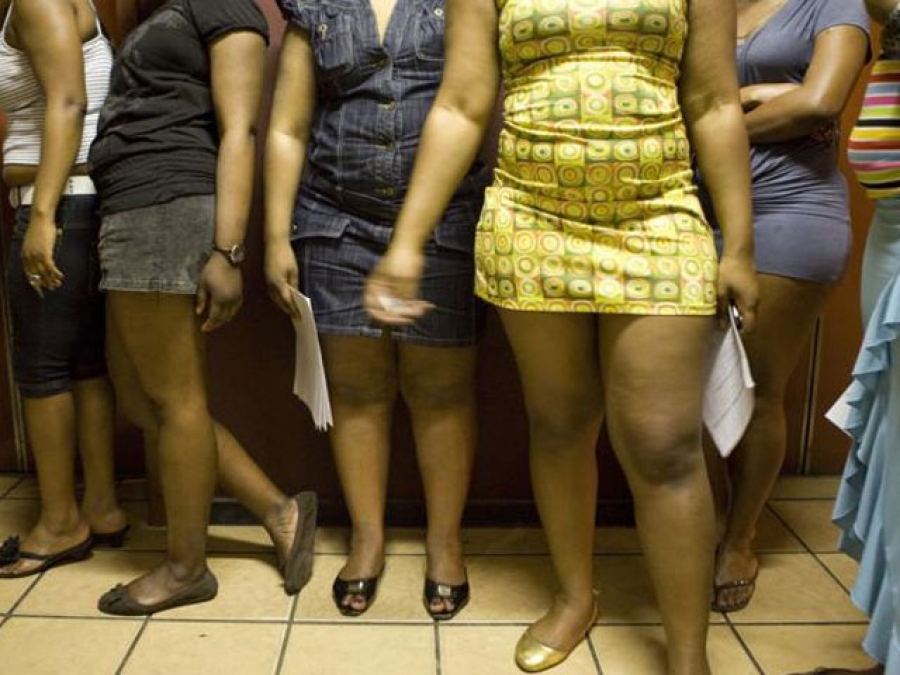Nigerian Women Trafficked Into Italy
Since January 2015, international media has covered intensely the plight of migrants crossing the Mediterranean, as well as those left adrift by human smugglers in crowded boats near South Asia. What has received less of a spotlight lately is the plight of those who fall victim to human trafficking. The distinction between human smuggling and human trafficking is that people engage voluntarily in smuggling while they fall into trafficking involuntarily. A phenomenon that has grown in the past 30 years in particular, is the trafficking of tens of thousands of Africans, who are hoping for a better life, into Europe. One stark example of this is the trafficking of women from Nigeria to Italy who are forced to work in the sex trade. Human rights groups are deeply concerned that 80% of women trafficked to Italy come from Benin City in Edo State in Southern Nigeria. This city has now become the main hub for sex trafficking between West Africa and Europe. This begs the question, why Benin City and what are the consequences?
The Current Situation
According to the United Nations Interregional Crime and Justice Research Institute (UNICRI), Italy is now the main destination for a total of more than 10,000 prostitutes trafficked from Benin City. These women are desperately seeking an escape from poverty in their home country, and are promised jobs by organized criminal gangs who have strong links to the Italian mafia. The cost of their travels equals about 50,000 Euros. Once they arrive at their destination there is no job waiting, as they were promised, but instead an obligation to pay off their debt by any means possible. In order to do so they are forced into the sex trade in which many work for up to three years. Some are even used as drug mules. Once their debts are paid however, they find no other way to earn a living and are left stuck in the sex trade. Nigerian criminal gangs who traffic women and girls often force them to undergo a Juju oath-swearing ritual that commits them to repaying the money they owe to the criminal gangs, which if violated would lead death or insanity. Many women and girls believe in this oath and thus commit themselves to paying off their debts by working as prostitutes.
There is even a documented structure to this industry. In Italy today there are more than 10,000 madams. Each madam is in charge of two to three trafficked girls, who are referred to as “babies”. These madams force the girls in to prostitution and ask for money to repay their debt. The Madams work with the men who physically trafficked the girls who are known as “brothers”. This means that the lives of the women and girls who are trafficked are kept under control by the different components of this structure, and makes it difficult for the girls to get out and for the police to penetrate it.
The Context Behind this Phenomenon
There are several reasons for the concentration of female trafficking from the State of Edo in Nigera, particularly Benin City, to Italy. Where one in three women receive offers to go to Europe to work. Firstly, within the Nigerian context at large, the levels of poverty and unemployment are high, and there are widespread emigration aspirations amongst the population. Yet the possibilities of migrating to Europe or the United States are extremely limited.
Secondly, the level of violence in the country, even without the presence of internal conflict, alongside corruption and organized crime surpasses that of most African countries. These historical and cultural factors, as well as a local tradition of slavery, and the disadvantaged state of women in Nigeria, have led to this phenomenon. Due to these factors, much importance is attributed to luxuries and marital status and working abroad is seen as the best strategy for escaping poverty.
Migration mechanisms in the country were established following the visibility of the success many female emigrants had in reaching Europe. This high visibility also meant that human trafficking became a well-known phenomenon in the Edo state and the consequences for women, who travelled to Europe, have become well known. This knowledge has caused many women to worry about being trafficked and therefore decline offers to travel to Europe for work. Despite the widespread knowledge about this issue, the decision to take the risk of traveling can never legitimize the abuse that many of the women face, nor their forced entry into the sex trade.
There are several reasons why Italy has become a prime destination for these traffickers. There is a long history of migration from Nigeria to Italy, with migrants first arriving in the 1980s due to the demand for low-skilled labor in agriculture and services. Initially, some women arriving there worked independently as prostitutes, however the rising difficulties in travelling, particularly the cost, have led women who aimed to find other kinds of work to fall into the debt of traffickers. Further, as mentioned above, Nigerian gangs have established a strong presence in several Nigerian towns, and have formed alliances with the Italian Mafia. In addition, the demand by Italian clients for Nigerian women in the sex trade ultimately perpetuates this phenomenon.
The Challenges and What has Been Done so Far
There has been some action taken to stop the traffickers, as well as to support the trafficked women. Italian police arrested 26 members of the Nigerian Mafia in 2010 and together they were sentenced to more than 400 years in prison for human trafficking, drug smuggling, and slavery. Shelters have been opened such as Sister Antonia, run by a Nigerian nun, in the city of Capua. The shelter opened in 2000 and provides a safe-haven where women can stay anywhere from 6 months to a year. At the centre, women can dedicate their time to their education and bettering their lives.
Realistically not enough has been done. This is the result of several challenges, including the fact that there is a demand in Italy for Nigerian women. In addition, Nigerian networks utilize less violence to control the women, leading to greater compliance by victims as they are treated more humanely than those who fall into the hands of Eastern European Traffickers who use more violence. This makes it difficult for the police to combat this kind of trafficking as the women are more cooperative with the traffickers. Despite these challenges however, it is clear that this phenomenon requires more attention and more urgent action from both the Nigerian and Italian Authorities, as well as the international community.







